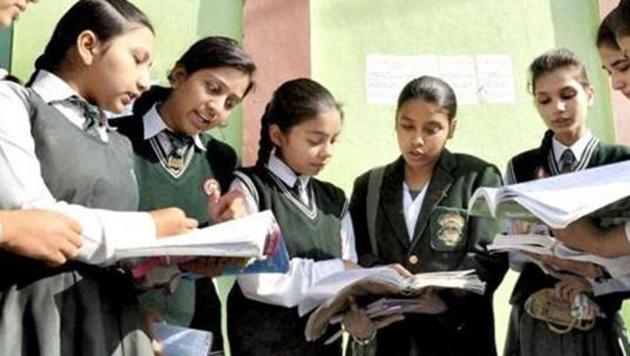CBSE to regulate class 9, 11 admissions of its affiliated schools
Standard Operating Procedures (SOPs) have been formulated for admissions in these classes under which the board will itself approve the admission requests, it has been learnt. Currently, schools conduct admission to classes 9 and 11 on the basis of their own rules.
The Central Board of Secondary Education (CBSE) will regulate admissions to classes 9 and 11 in all its affiliated schools across the country from next year, the board announced on Wednesday. This will be the first time that the board will be playing a direct role in school admissions.

Standard Operating Procedures (SOPs) have been formulated for admissions in these classes under which the board will itself approve the admission requests, it has been learnt. Currently, schools conduct admission to classes 9 and 11 on the basis of their own rules.
There are close to 20,000 CBSE-affiliated schools that offer education up to class 10, of these 12,000 run classes up to class 12.
The board had on Tuesday wrote to all its affiliated schools asking them to strictly abide by the SOPs, failing which strict action will be taken against them.
The board has described 11 categories under which admission can be sought in these two classes. These include transfer of parents, shifting of family, shifting of hostel, re-admission in other school after failing in these two classes, better education, long distance, medical condition, change of education board, among others.
The CBSE has also added new clauses for admission under these categories. For instance, if a student wants to take admission in any of these two classes in another school citing “better education” facilities, the parents will have to submit the results of last five years of both the schools (in which the ward is currently studying and the one in which admission is sought) along with the application. They will also have to submit the qualification and teaching experience of the staff members of both the schools with the CBSE.
The clause drew criticism from principals with many of them saying that why the schools will give such information to the leaving students. Amita Wattal, principal of Springdales School, said, “First of all, an education board should not get involved in admission policy. Secondly, on one hand the CBSE is advocating holistic development and on the other hand it’s evaluating the quality of teachers through results. Results do not reflect the learning outcomes of the schools or the students.”
Principal of a private school in east Delhi, who didn’t wish to be named, said, “Why would a school bother and give such details to a student who is leaving the school? This is an unrealistic clause.”
Sanyam Bhardwaj, CBSE’s controller examinations, said the decision of formulating the SOPs was taken to “streamline” the process and to make sure that only “genuine students” get admissions. “There have been cases when students unnecessarily try to change the schools in class 9 and 11, citing that the other school is better. In such circumstances, we have asked the parents to prove that through the results of both the schools – admitting and leaving— and the quality of teachers working in them,” he said.
Bhardwaj also said that the leaving school will have to cooperate with the parents. “Failing which action will be taken against them,” he said.
The board has also asked the schools to fix the deadline for admissions in these classes. “It has been observed that requests are made at the end of the academic session for change of school. Last minute shifting of school does not provide conducive educational environment to students, as they are not well acquainted with new classmates and teachers. That’s why deadlines are being set,” Bhardwaj said in the communication sent to the schools.
The board has further asked the schools not to give admissions to any student coming from any unaffiliated school in these classes. “There have been instances when unaffiliated schools have tie-up with some CBSE affiliated schools and make their students appear in the CBSE’s exams. That’s why this instruction was given,” Bhardwarj explained.
 Get alert on your mobile and email as soon as the result is declared. For this, please provide information.
Get alert on your mobile and email as soon as the result is declared. For this, please provide information. 











